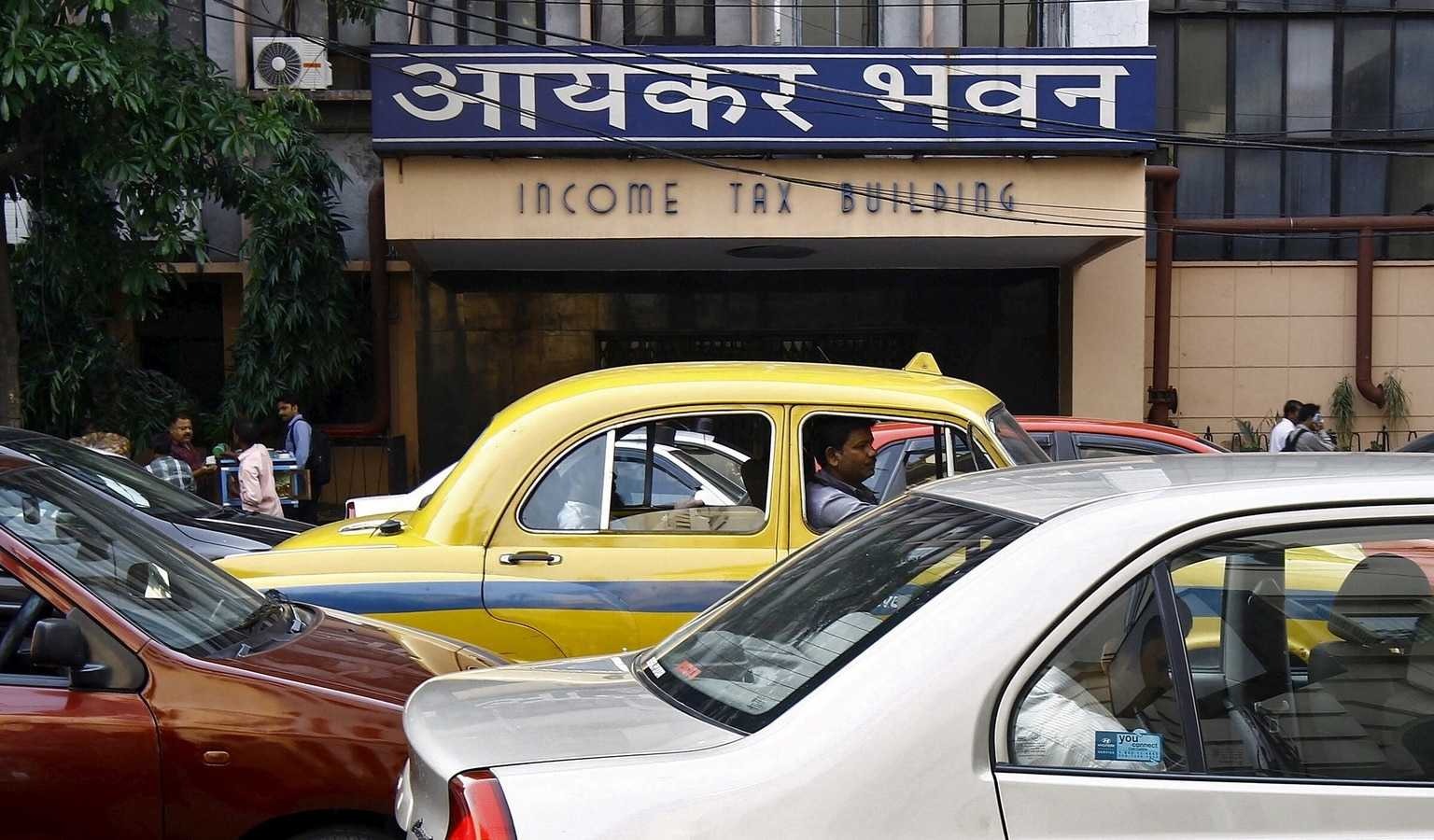New Delhi, September 15, 2025 – In a decisive and unambiguous statement, the Income Tax Department of India confirmed today that the September 15, 2025 deadline for filing Income Tax Returns (ITR) remains firm, dismissing widespread rumors that an extension to September 30, 2025 would be granted. As the clock ticks closer to midnight, millions of individual taxpayers and businesses across India are frantically attempting to complete their tax filings, while the department is actively engaged in battling a wave of misinformation spreading rapidly across social media platforms.
The announcement came after days of uncertainty and panic among taxpayers, who were increasingly influenced by viral posts suggesting a last-minute reprieve. The Income Tax Department, through official channels and press releases, clarified that no extension would be issued and urged citizens to file their returns without delay.
The Official Statement: No Extension, Deadline Is Final
In a strong communication issued on Monday morning, the Income Tax Department reiterated:
“The due date for filing Income Tax Returns for the Assessment Year 2025-26 remains September 15, 2025. No further extension will be granted under any circumstances.”
The statement further emphasized that all taxpayers, including individuals, partnership firms, and companies required to file their returns, must ensure compliance by the midnight deadline to avoid penalties and legal complications.
The Department of Income Tax also took a firm stance against misinformation, warning that any attempts to spread false rumors about extensions could attract strict action under the Information Technology Act and the Income Tax Act.
The Surge in Last-Minute Filings: A Race Against Time
As the deadline neared, official data from the Income Tax Department indicated an unprecedented surge in the number of filings. In the last 24 hours alone, over 3 million returns were filed, with a significant portion being individual taxpayers attempting to beat the clock.
Tax experts describe the situation as a “frenzied rush,” driven both by genuine compliance efforts and last-minute panic. Many citizens admitted to postponing their filings until the final day due to complacency, lack of preparedness, or confusion about the exact deadline.
Ramesh Kumar, a tax consultant in Delhi, shared his observations:
“It’s a mad scramble right now. Most of my clients waited until the last moment, and now we’re working round the clock to get their ITRs filed. The misinformation floating around social media didn’t help—it only compounded the anxiety.”
The Role of Social Media in Spreading Misinformation
In the past week, social media platforms became a breeding ground for unverified rumors suggesting the ITR filing deadline would be extended until September 30, 2025. These posts gained traction rapidly, fueled by misleading screenshots of alleged official notices and viral messages circulated on WhatsApp, Twitter, and Facebook.
The Ministry of Finance and the Income Tax Department repeatedly debunked these rumors through official Twitter handles, press briefings, and website updates. A specially designated FAQ section on the department’s official portal provided clear guidance, but the viral nature of misinformation proved hard to contain.
The department’s spokesperson warned:
“Spreading false information about tax deadlines is a punishable offense. Taxpayers are urged to rely only on official sources such as incometaxindia.gov.in or notifications from the Central Board of Direct Taxes (CBDT).”
Cybercrime experts also pointed out that some of the misinformation campaigns appeared to be deliberate attempts to confuse taxpayers and disrupt the system, possibly perpetrated by unscrupulous entities seeking to exploit panic for financial or political motives.
The Stakes: Penalties for Missing the Deadline
For millions of Indians, missing the ITR filing deadline carries significant financial and legal implications.
Penalties and Consequences:
- Late Filing Penalty: Taxpayers who miss the September 15 deadline are liable to pay a late filing fee under Section 234F of the Income Tax Act. Depending on the timing of the filing, penalties range from ₹5,000 to ₹10,000 for individual taxpayers.
- Interest on Tax Dues: In addition to penalties, interest is applicable on any tax dues, calculated from the original due date until the date of actual payment.
- Loss of Refunds and Carry Forward of Losses: Delayed filings can result in the loss of legitimate refunds or the inability to carry forward business or capital losses to subsequent financial years.
- Legal Repercussions: Continuous failure to comply with tax obligations may lead to stricter legal actions, including audits, assessments, and in extreme cases, prosecution.
Tax experts emphasized that the current situation is avoidable with proper financial planning and timely compliance.
Government’s Outreach and Measures to Assist Taxpayers
Aware of the impending deadline and the panic surrounding it, the Income Tax Department and the Central Board of Direct Taxes (CBDT) undertook several measures to facilitate last-minute filing and reduce taxpayer anxiety.
Helpline and Support Systems:
- A dedicated helpdesk and helpline numbers were expanded, with extended working hours, specifically designed to assist taxpayers struggling with online filing.
- The department’s official website was fortified to handle the surge in traffic, although some temporary slowdowns and service disruptions were reported due to unprecedented volume.
Public Awareness Campaign:
- The CBDT ran targeted public awareness campaigns through mass media, digital platforms, and direct communication to discredit false rumors and guide taxpayers toward accurate, official information.
- Step-by-step video tutorials and FAQs were updated on the official portal to ensure even less tech-savvy citizens could complete their filings on time.
Dr. Priya Menon, Tax Policy Expert at the Indian Institute of Finance, noted:
“The government’s proactive measures helped mitigate the crisis to some extent, but the misinformation blitz showed how vulnerable the system is to social media-fueled panic.”
Expert Opinions: What Taxpayers Should Do Now
Tax consultants and financial advisors uniformly urged taxpayers to remain calm and act swiftly to meet the midnight deadline.
Key recommendations included:
- Use Official Portals: Taxpayers should file returns directly via the official Income Tax Department portal (incometaxindia.gov.in) to avoid phishing sites and scams.
- Ensure Accurate Data: Double-check financial statements, Form 26AS, and other necessary documents before submitting returns to prevent rejections.
- Seek Professional Help if Needed: In case of complexities or confusion, consulting qualified tax professionals is advised to avoid mistakes under time pressure.
- Avoid Last-Minute Panic: While the rush was inevitable, experts highlighted the importance of disciplined financial planning and early tax compliance in the future.
Anil Bansal, Senior Tax Advisor at TaxWell Solutions, warned:
“Delaying tax filing until the last moment is risky. Even though the deadline is today, we are seeing taxpayers face login errors, server issues, and document mismatches. There is no further extension, so it’s imperative that filings are completed without delay.”
The Bigger Picture: Digital India and E-Governance
India’s transition to digital tax filing has been one of the largest e-governance initiatives in the world. Over the past decade, the government has shifted aggressively toward digital filing to improve compliance, reduce paperwork, and improve efficiency.
- The e-filing system, launched in its current form since 2016, has significantly simplified the process, allowing millions of taxpayers to file returns from the comfort of their homes.
- The government has implemented pre-filled ITR forms, enabling users to automatically populate fields with data already available in the system.
- The expansion of digital literacy programs and tutorials has aimed to make tax filing accessible to all income groups, including those in rural areas.
Despite these advances, the current surge in filings highlighted that many citizens still rely on last-minute filing and lack adequate awareness of deadlines and processes. Experts argue that continued investment in digital literacy and public education campaigns is critical to prevent such last-minute rushes in the future.
Global Comparison: Tax Filing Behavior and Deadlines
India’s tax filing culture mirrors patterns observed in several other countries.
- In the United States, the tax filing deadline is typically April 15, and millions of Americans also rush to file at the last moment, often using services such as TurboTax and H&R Block.
- In the UK, the HMRC has similarly seen significant last-minute filings, with millions of taxpayers filing close to deadlines.
- Countries like Australia and Canada have similarly invested heavily in online tax filing platforms, yet last-minute filing remains a common phenomenon globally.
What distinguishes India is the widespread penetration of misinformation on digital platforms and the large proportion of taxpayers filing individually without professional help, increasing susceptibility to panic.
The Road Ahead: Lessons Learned and Next Steps
As the midnight deadline approaches, the Income Tax Department appears determined to maintain strict adherence to the September 15 cutoff, signaling a clear message that compliance is non-negotiable.
Moving forward, the key lessons and next steps include:
- Stronger Misinformation Controls: The government may now consider collaborating more closely with social media platforms to detect and remove tax-related misinformation in real time.
- Enhanced Public Communication: Regular reminders and clear communication of deadlines well in advance could help reduce the last-minute rush.
- Extended Helpdesk Services: Expanding technical and customer support during peak periods must become standard practice, ensuring no taxpayer is left stranded.
- Promotion of Advance Planning: Financial education campaigns will play a critical role in encouraging early filing practices, especially among individual taxpayers.
Conclusion: A Critical Juncture for Tax Compliance in India
The Income Tax Department’s firm decision to not extend the filing deadline marks a defining moment in India’s tax compliance regime. It underscores the government’s commitment to maintaining order and discipline in the digital tax ecosystem, even amid rising misinformation and logistical challenges.
While the last-minute rush has exposed vulnerabilities in public awareness and system preparedness, it also highlights the immense scale of India’s digital transformation in tax administration.
For millions of taxpayers, the coming hours represent a race against time. For the government, it is an opportunity to reflect on improving public communication, combating misinformation more effectively, and strengthening the digital filing infrastructure.
As India’s economy continues to digitize and expand, ensuring smooth, reliable, and transparent tax processes will be paramount to achieving sustainable financial governance in the years to come.





